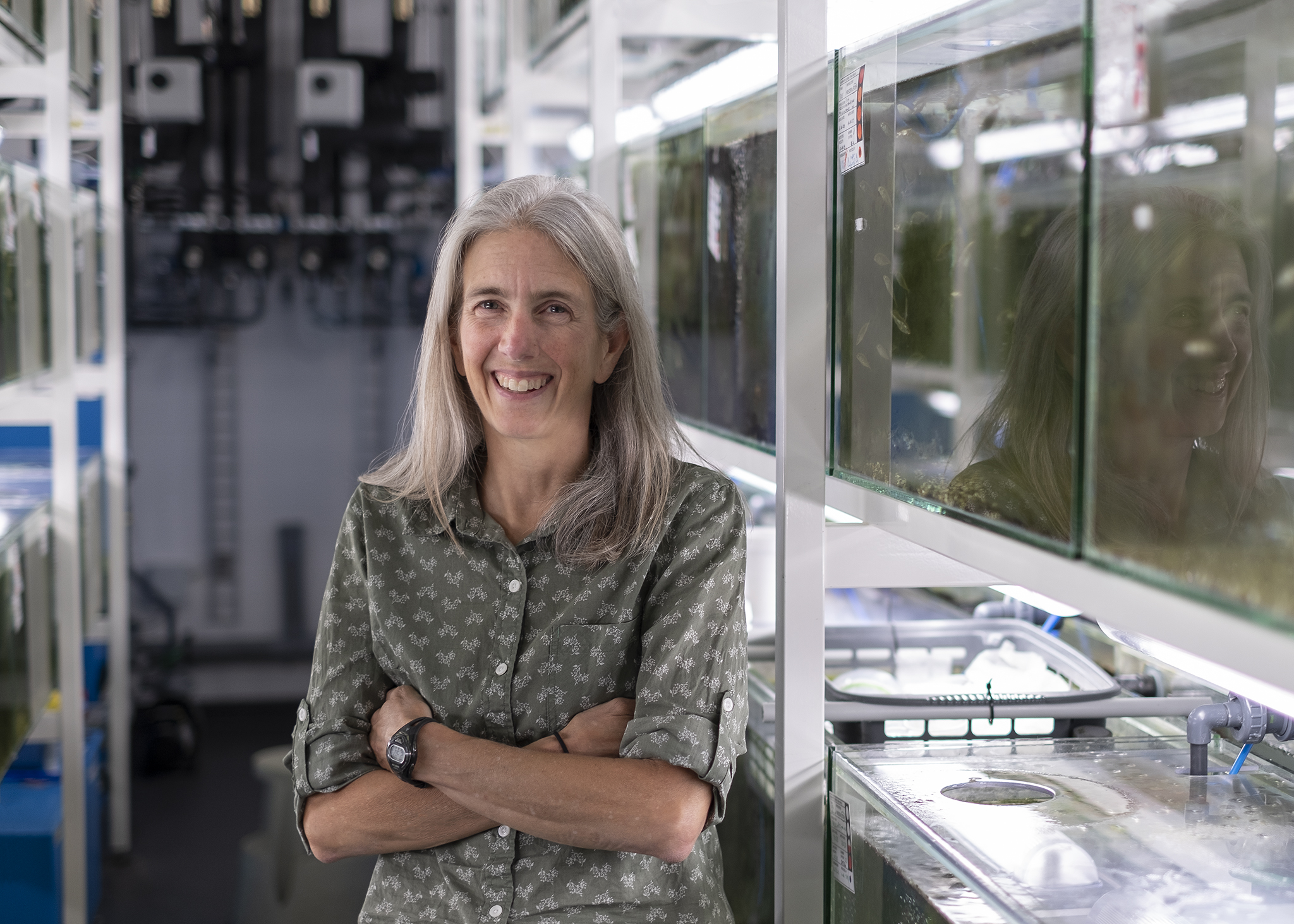Two Bernese researchers receive SNSF Advanced Grant
Neuropsychologist Katharina Henke and evolutionary biologist Katie Peichel are each receiving a highly endowed SNSF Advanced Grant from the Swiss National Science Foundation (SNSF). Their research projects deal with the ability to remember despite amnesia and the predictability of evolution.
With the SNSF Advanced Grants, the Swiss National Science Foundation supports researchers with a track record of outstanding research over the past ten years, who are recognized as leaders in their fields. Researchers who wish to conduct innovative, high-risk research in Switzerland are funded. SNSF Advanced Grants provide funding of up to CHF 2.5 million for a maximum period of five years.
The SNSF Advanced Grants were launched in 2021 to provide an interim solution for researchers wishing to apply for an ERC Advanced Grant under Horizon Europe. Researchers from Swiss institutions are currently unable to apply for ERC grants as Switzerland is considered a non-associated third country in the EU’s “Horizon Europe” research program.
Successful projects for research into memory and evolution
In the current call for proposals, Prof. Dr. Katharina Henke, professor at the Institute of Psychology, and Prof. Dr. Catherine (Katie) Peichel, Director of the Evolutionary Ecology division at the Institute of Ecology and Evolution, two researchers at the University of Bern, are receiving such a highly endowed grant. The research projects deal with the ability to remember despite severe memory disorders and the predictability of evolution, respectively.
“Both research projects are extremely innovative. I am delighted that these two renowned scientists were successful in applying for this important research grant by the SNSF,” says Hugues Abriel, Vice-Rector for Research at the University of Bern. “However, it is worrying that researchers from Switzerland are still unable to apply for ERC grants. Research relies on networking and international cooperation.”
The projects of Katharina Henke and Katie Peichel:
Conscious remembering despite amnesiaProf. Dr. Katharina Henke, Professor at the Institute of Psychology, has received an SNSF Advanced Grant in the amount of CHF 1.7 million for a research project in the field of memory research. The duration of the project is five years. According to doctrines, newly experienced episodes are no longer stored in the case of severe memory impairment (amnesia). Here, Katharina Henke’s team investigates whether experienced events are nevertheless stored despite amnesia, but can only be remembered unconsciously. By means of brain stimulation, the weak memory traces in amnesic patients are strengthened in order to induce a conscious (rather than unconscious) retrieval of experienced events. The project was inspired by research on the mouse model for amnesia. This showed that episodic learning is possible unconsciously despite amnesia and dementia because physical memory traces of new memories are present. These memory traces contained the complete information content but could not be consciously retrieved. These memory traces were optogenetically amplified with the result that the amnesic animals were able to retrieve their memories. In this research project in the human, the Henke team maps individual memory traces in the brain of healthy and amnesic people with the help of ultra-high-field magnetic resonance imaging. The team performs functional, structural and spectroscopic magnetic resonance imaging to track the dynamic changes of newly formed memory traces over 24 hours. Non-invasive brain stimulation enhances memory formation. If amnesic patients continue to store experience events and if storage can be enhanced by brain stimulation to the point where conscious retrieval becomes possible, then this discovery will revise memory theories and will initiate new diagnostic and therapeutic strategies for those suffering from amnesia. These findings will positively change the perception and treatment of amnesic patients in our society. About Katharina Henke:Katharina Henke studied psychology and neuroscience at the University of Bern and simultaneously completed a dance education. At the University of Konstanz, she received her neuropsychology doctorate in 1992, which focused on Unconscious Perception. She worked as a clinical and experimental neuropsychologist at the University Hospital Zurich. Between 1995 and 1997, she learned the new imaging techniques as a postdoc at the University of California Davis and she discovered the function of the hippocampus in human memory. She continued her clinical and experimental work at the University Hospital Zurich. In 2015, she became a professor at the University of Bern. Her innovative experiments on unconscious memory formation challenged textbook accounts of memory. Since 2010, her own memory model is increasingly superseding established memory models. |
Can we predict the course of evolution?Prof. Dr. Catherine (Katie) Peichel, Director of the Division of Evolutionary Ecology in the Institute of Ecology and Evolution, received an SNSF Advanced Grant of 2.6 million CHF for a five-year project in the area of Evolutionary Biology. A major question in evolutionary biology is: how predictable is evolution? If we placed similar starting populations into replicated similar environments and then watched evolution happen, would each replicate population evolve in a predictable way? Or, is evolution fundamentally unpredictable, dominated by chance events? Experiments to test evolutionary predictability have been done in the laboratory using bacteria and other microorganisms but have never been done with a vertebrate system in real ecosystems in nature. In this project, Prof. Peichel and a team of international collaborators have established just such an experiment, by putting threespine stickleback fish into eight empty lakes in Alaska. She and her team will sequence the genomes of all 10,000 fish that were put into the lakes. Using these genetic data and knowledge about the ecology of the lakes, she will then determine whether the genomes and the phenotypes of the fish change in a repeatable and predictable way over generations. Knowing why evolution is repeatable and predictable (or why it isn’t) is of fundamental importance. For example, if we were able to predict evolution, we might be able to predict when a virus might evolve to escape a vaccine, how pests might evolve to resist pesticides, or whether a species will survive climate change. About Katie PeichelKatie Peichel grew up in California and completed her studies at the University of California, Berkeley, in 1991. Her dissertation at Princeton University focused on methods for identifying genes that are important for organismal development. Based on this research, she is interested in the use of similar methods for studying the genetic basis of phenotypic diversity in nature (in genetics the phenotype refers to appearance). In 1998, Peichel accepted a postdoctoral position at Stanford University. There she was involved in establishing the three-spined stickleback as a genetic model for the study of evolution. Between 2003 and 2016, she was a professor at the University of Washington and head of a research laboratory at the Fred Hutchinson Cancer Research Center in Seattle. She has been Full Professor of Evolutionary Biology at the University of Bern since 2016. |
2022/07/07



